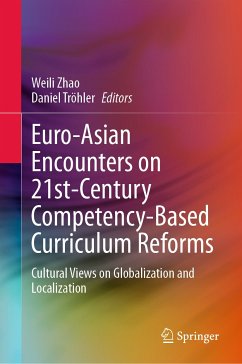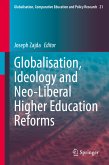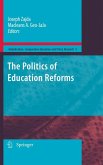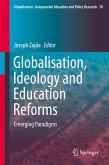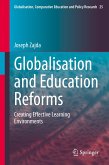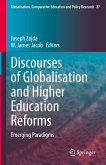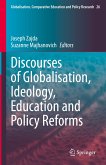This book offers a geographically unique cultural comparative lens to examine the issue of transnational curriculum knowledge (re)production. Prompted by the ongoing competency-based curriculum reforms on a global scale, this book examines where global frameworks like the OECD's core competency definitions are rooted and how they are borrowed, resisted, and/or re-contextualized in various European states with a Christian, foremost Protestant educational-cultural heritage and Asian countries with a Confucian educational-cultural heritage. It highlights the roles that various factors, such as history, culture, religious attitudes, ideology, and state governance play in nation-states' re-contextualization of global curriculum policies and practices beyond a simplistic and dualistic globalism/power and nationalism/resistance dynamic. In doing so, it provides a global context to better understand individual nation-state's continuing curriculum reforms and school practices. At the same time, it situates individual nation-state's latest curriculum reforms and practices within an international community for healthy dialogues and mutual sharing.
By selecting two educational-cultural systems and wisdom-Christian-Protestant and Confucian-it also offers a springboard for international curriculum studies beyond the usual confinement of geopolitical nation-state constructs. It not only sheds new light on each nation-state's curriculum policies and practices, but also creates new collaboration spaces within similar and across disparate cultural-educational regions.
With its wide geopolitical and educational-cultural scope, this book appeals to a global market and can be used in a variety of undergraduate and graduate courses in comparative education, history of education, curriculum theory, school and society, and curriculum history.
Dieser Download kann aus rechtlichen Gründen nur mit Rechnungsadresse in A, B, BG, CY, CZ, D, DK, EW, E, FIN, F, GR, HR, H, IRL, I, LT, L, LR, M, NL, PL, P, R, S, SLO, SK ausgeliefert werden.
Hinweis: Dieser Artikel kann nur an eine deutsche Lieferadresse ausgeliefert werden.

